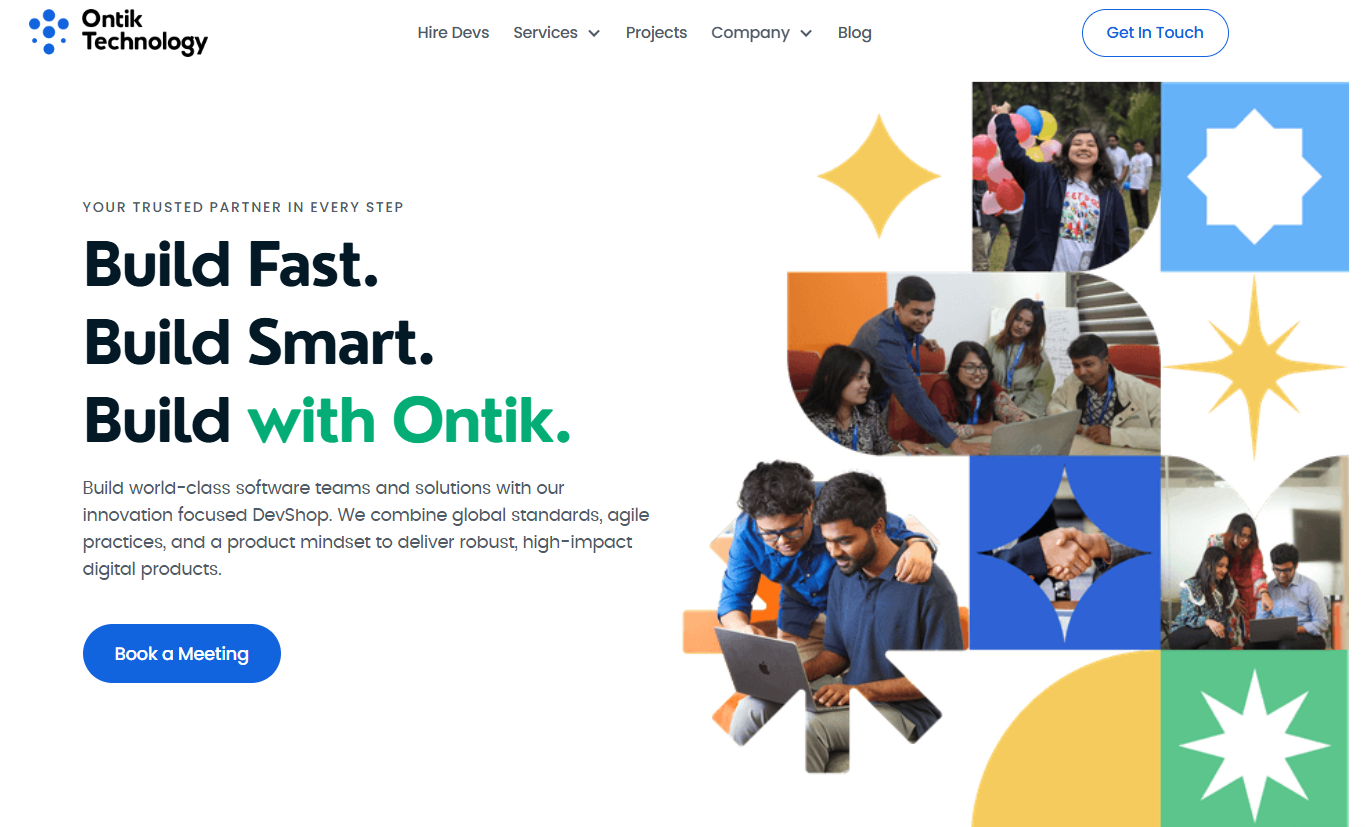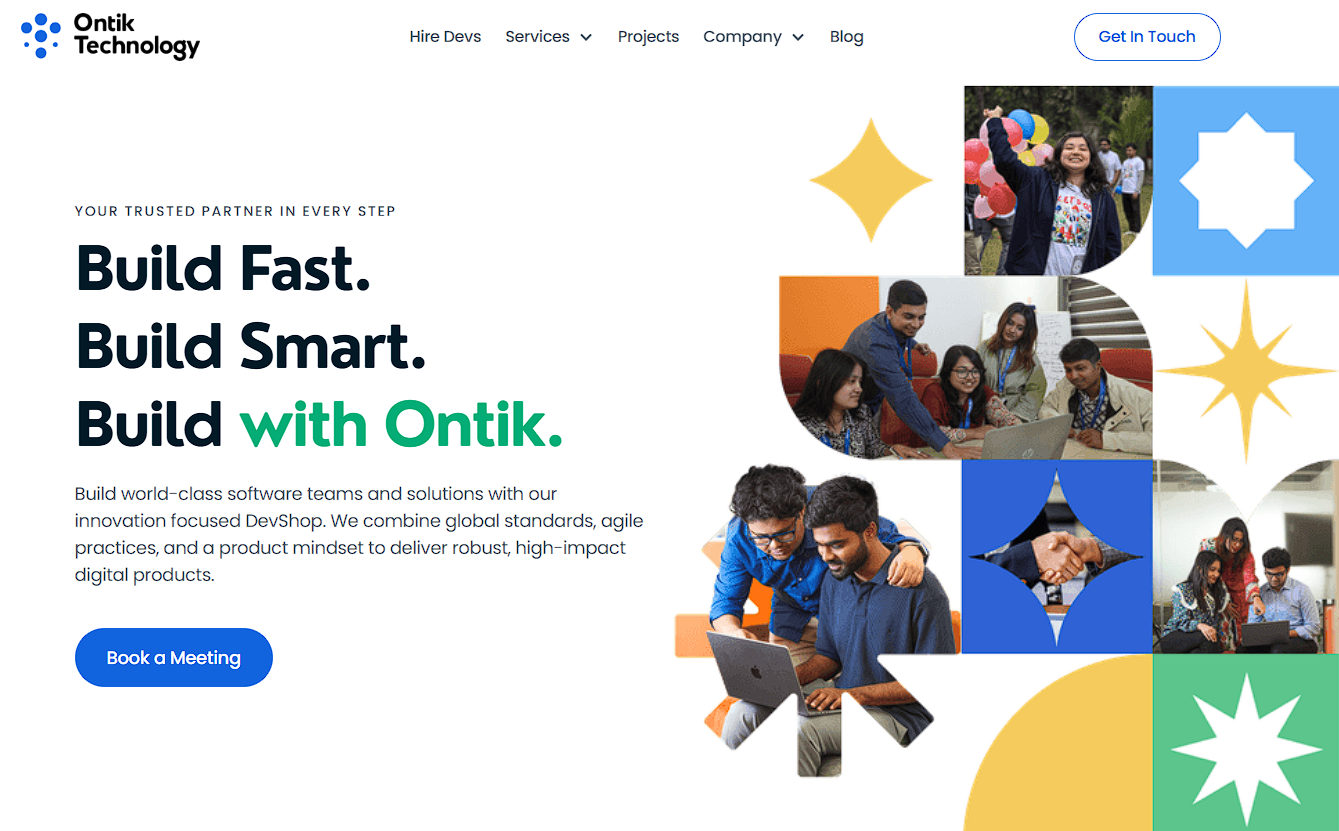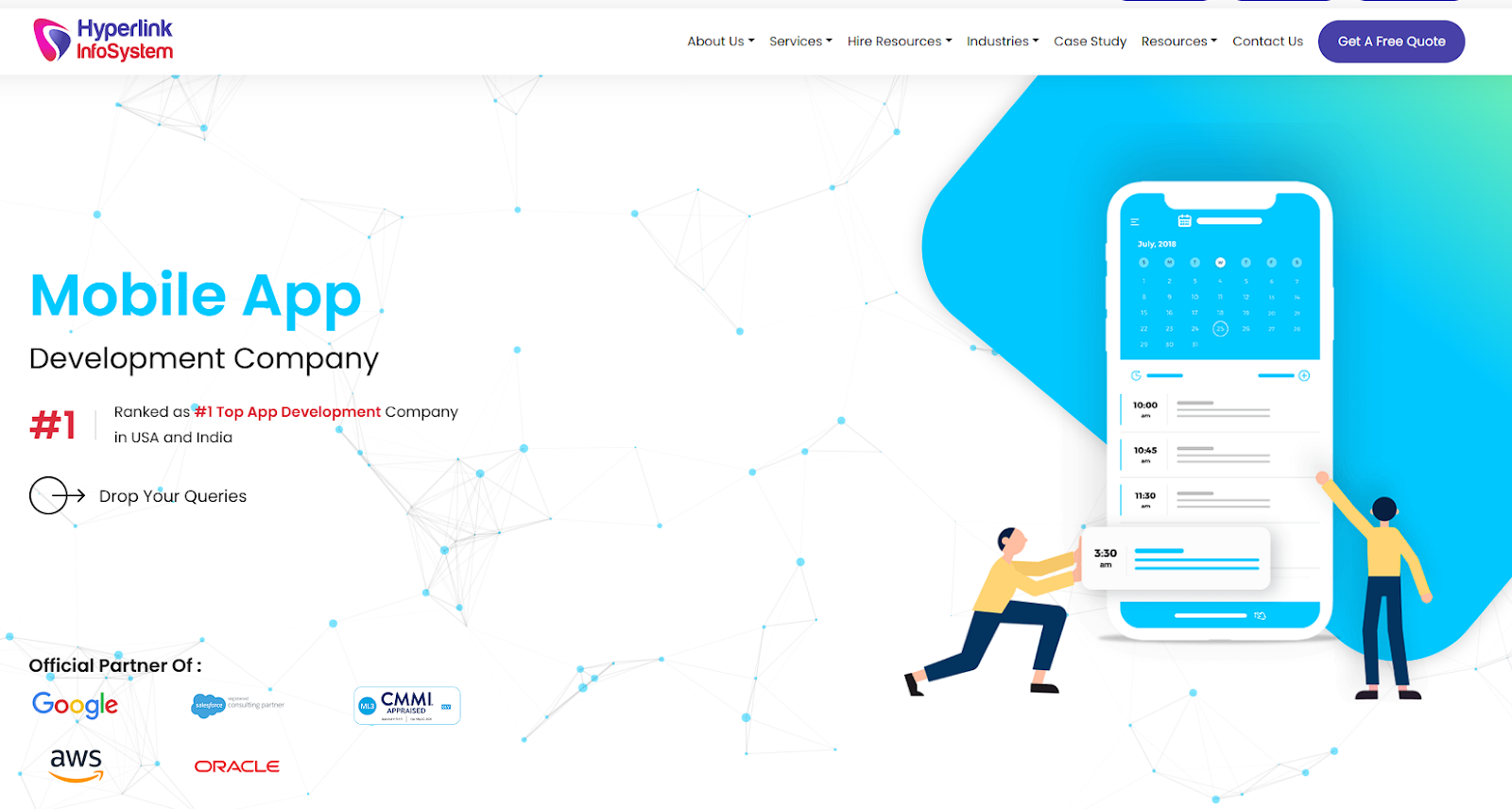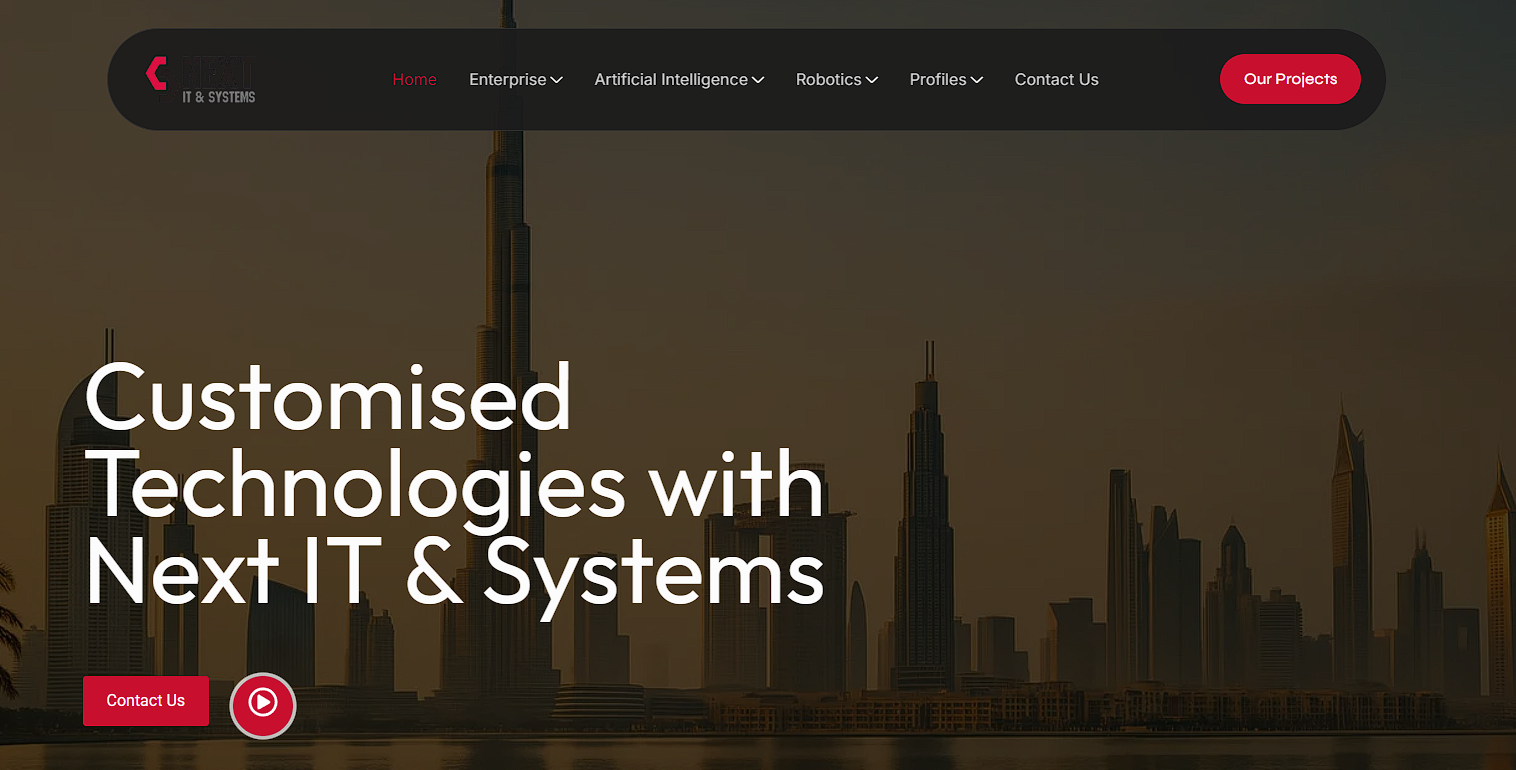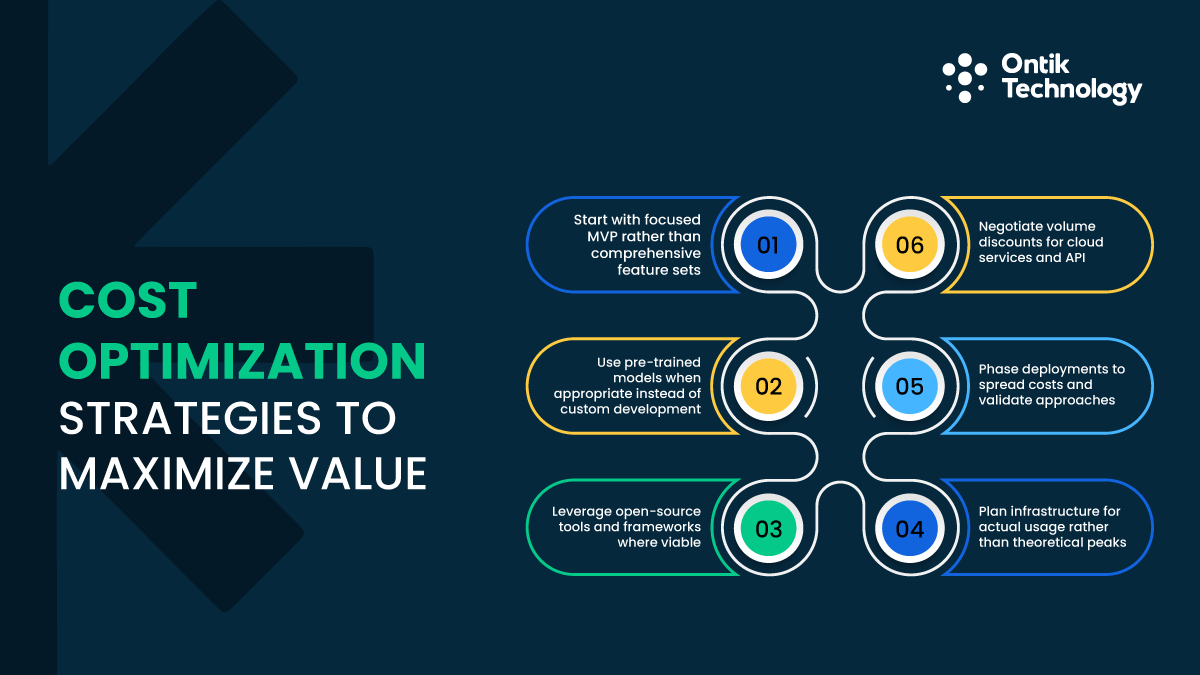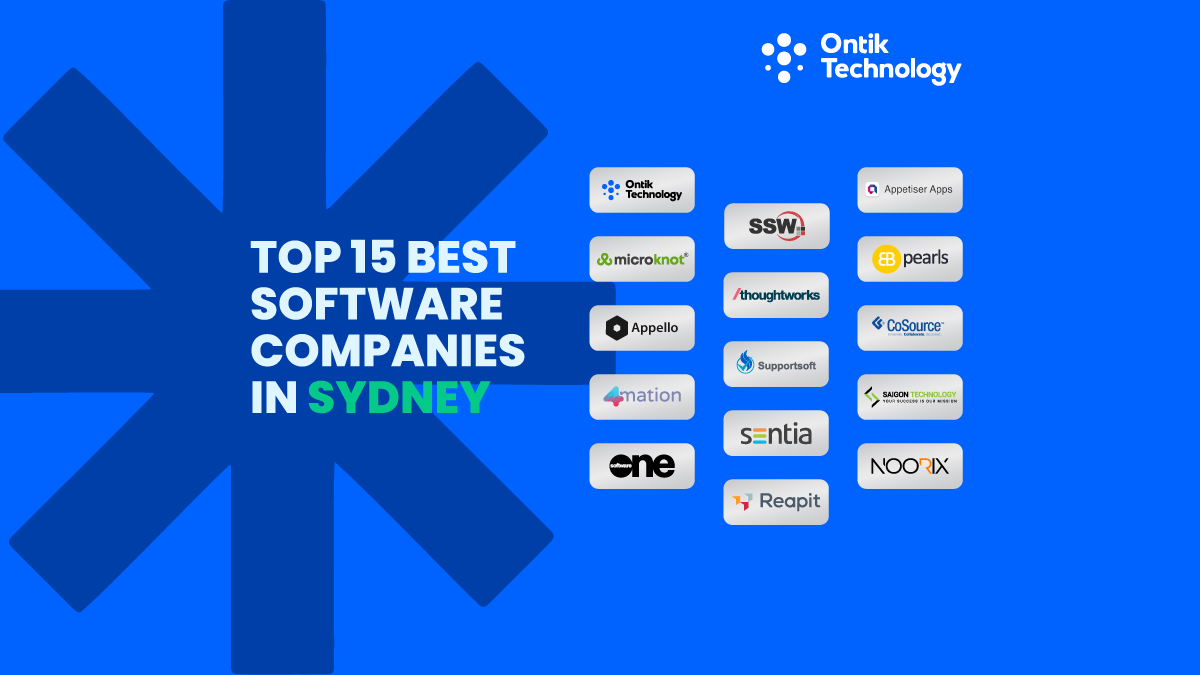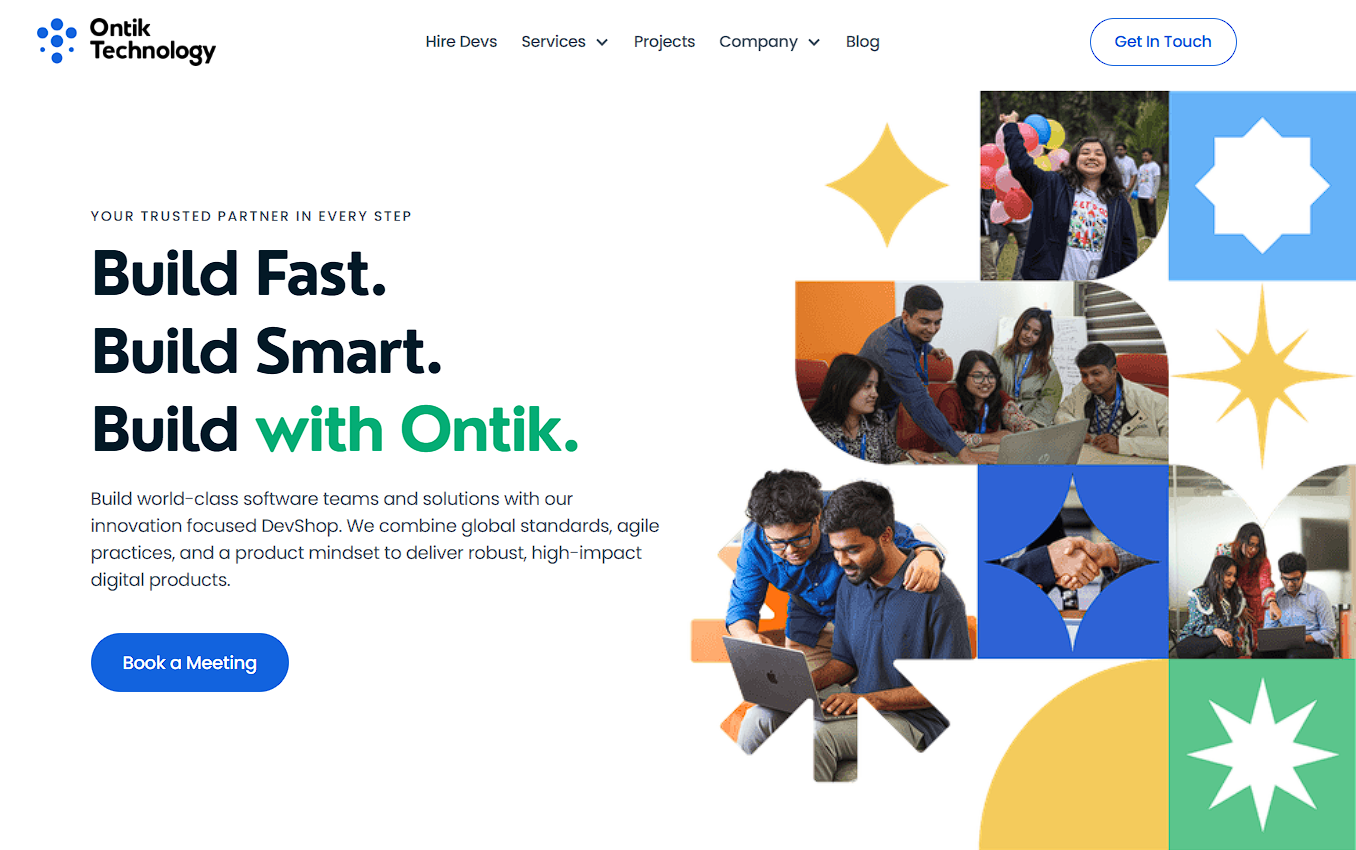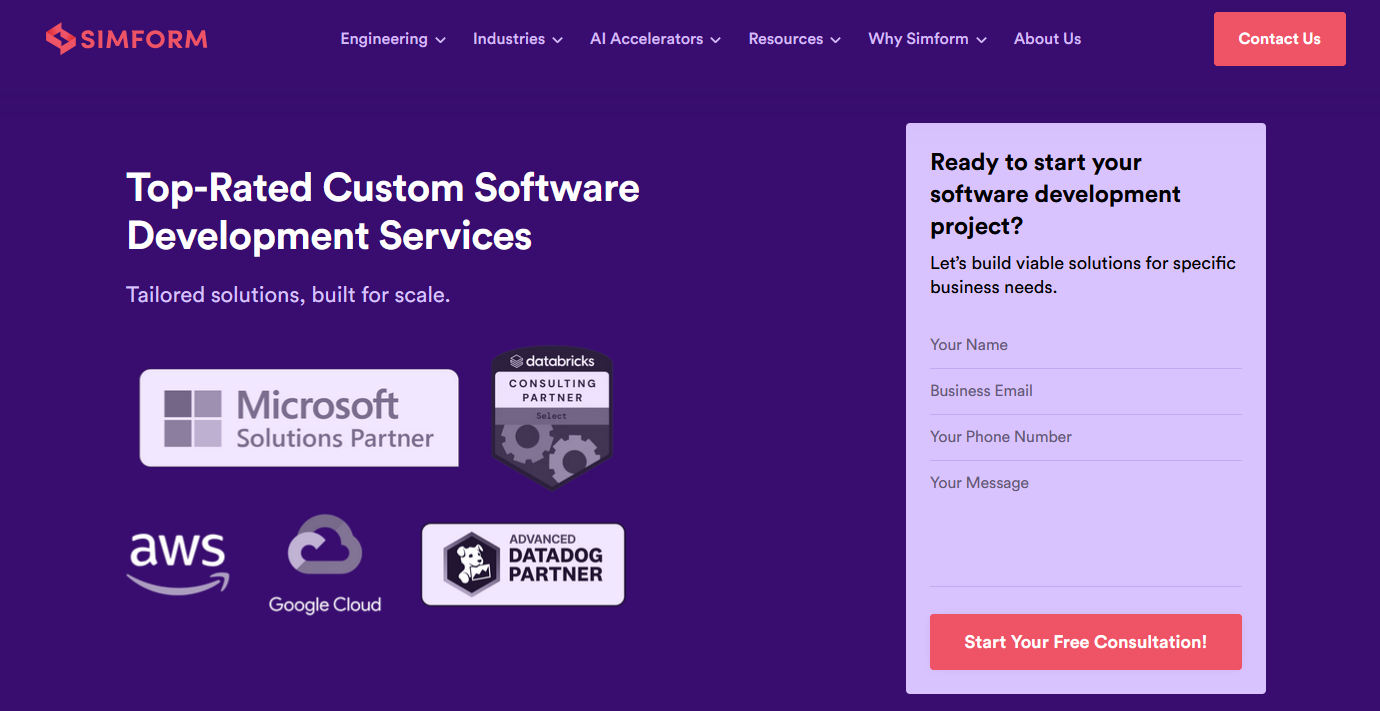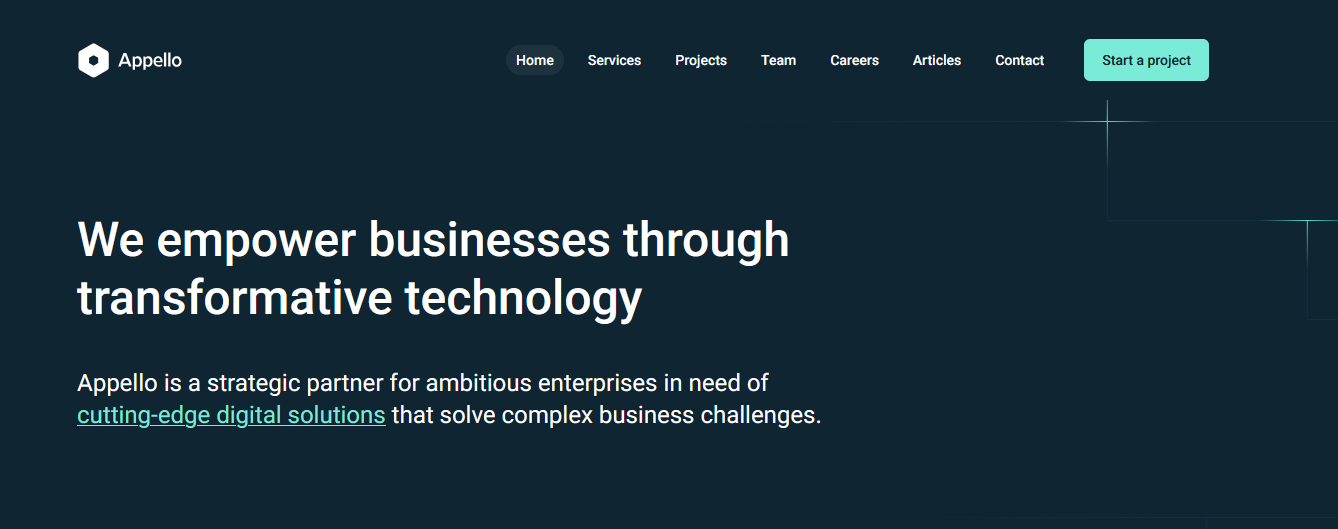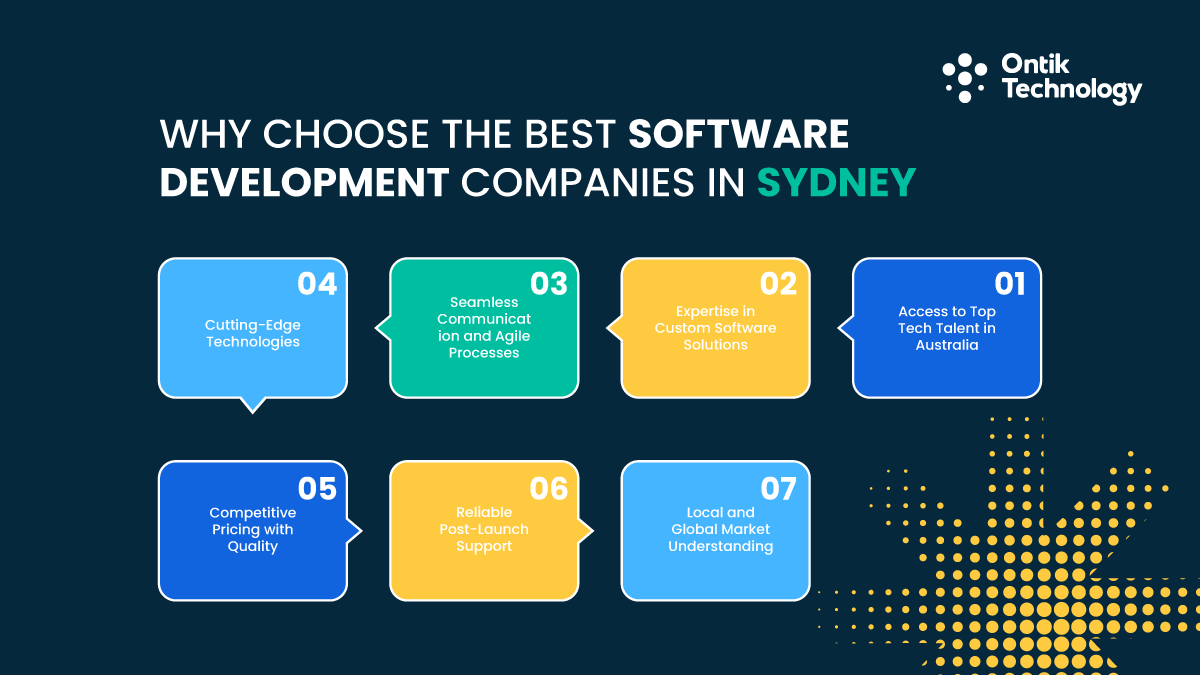Guide on Hiring Remote Developers in 2025: How Startups Build Remote Teams
You’ll be surprised to know that 63% of employees are more productive working from home, compared to just 37% who are more productive in the office. Plus, 51% of staff feel more creative at home, while only 30% say the same for the office.
To stay ahead and maximize your business profit, hiring remote developers is a smart choice. Remote developers are programmers who work from anywhere, eliminating the need for a physical office. This flexibility allows you to save a significant amount by focusing on your core operations.
However, hiring remote developers for staff augmentation is not a walk in the park if you are not familiar with the collaborative development environment. You need to approach it with the right strategy. That’s why Ontik Technology’s expert team has put together an easy-to-follow guide on how to hire remote developers for any of your projects. In this guide, we will cover all the ins and outs of the topic. So get ready and start checking it out now!
Why is Remote Staff Augmentation Important for Startups?
Remote IT staff augmentation is important for startups because it helps save money, provides flexibility, and gives access to a wide range of skills. Startups often have to work with limited budgets and need to be able to adapt quickly.
By hiring remote developers temporarily, you can get the talent you need without the costs of hiring full-time employees. This way, you only pay for the talent you need, when you need it. There are different types of staff augmentation. So, you need to pick the right one for your company. Moreover, since you’re not limited by geography, you can find experts from around the world. This opens up opportunities to work with top talent that might not be available locally. For a startup, this means you can build a high-quality team quickly and affordably, which is essential for staying competitive. In short, Remote It staffing helps startups save money, access global expertise, and scale efficiently—all of which are vital for success in the early stages of a business.
What is the Future of Remote Staff Augmentation
By 2025, IT market is expected to reach $81.87 billion. In 2020, the US had about 8 million tech jobs, with 5.2 million in key technical roles. The future of remote staff augmentation looks bright! Companies will keep using remote workers to fill gaps in their teams because it's cost-effective and flexible. With advances in technology, communication will become even easier, and remote work will be more seamless.
Let’s take a look at how Remote It staffing is shaping the future:
More People Working Worldwide:
As remote work grows, people from different countries can now work together. This expands job opportunities and talent pools. Companies can find the best people, no matter where they live.
Changing Old Job Structures:
Traditional office jobs are changing. More roles are flexible, allowing people to work from anywhere. This shift helps improve work-life balance and productivity.
Better Tools for Working Together:
New tools make remote work easier. Video calls, shared documents, and project management apps help teams stay connected and collaborate effectively, no matter the distance.
Moving to Online Work:
More businesses are moving online. This trend offers flexibility and reduces the specific needs for physical office space. Online work is becoming a standard part of many jobs.
Top Remote Staff Augmentation Trends in 2025
If you look at how business organizations are recruiting staff, you can see that there is a particular trend towards remote work. Remote work is evolving rapidly. Here’s a look at the top trends driving change in the remote staffing landscape:
Trend 1: Technological Advancements & Skills Requirements
New technologies like AI and machine learning are changing what skills are needed. Remote workers must keep up with these changes to stay valuable and effective.
Trend 2: Remote Work & The Global Talent Pool
Remote work opens up access to talent from all over the world. This lets startups find diverse specialized skills and ideas, boosting creativity and productivity without being limited by location.
Trend 3: Agile & Flexible Workforce Solutions
Companies are using flexible workforce models to quickly adapt to changes. This approach helps manage projects better and adjust the number of workers as needed.
Process of Remote IT Staff Augmentation

During the early days of Ontik Tech, our new partners frequently inquired about the process of remote IT staff augmentation, questioning whether it was complex or straightforward. Understanding your concerns, our experts have decided to clarify the process and show just how simple it can be.
Here’s a simple process to effectively integrate remote team members into your business.
Identifying Business Needs:
Identify what roles and skills your startup needs, like tech support or marketing. This helps you find the right remote staff.
Hire Developers with Similar Industry Experience:
Look for developers who have worked in your industry before. Their experience means they already understand the specific needs and challenges of your field. This can make your project run more smoothly, with solutions that fit your business better and help you reach your goals more easily.
Selecting a Vendor Partner:
Next, find the best IT startups or established companies that offers remote group augmentation. Look for vendors with a good track record and who understand your industry. Take your time to compare options and choose a partner that aligns with your goals and budget.
On that note, Ontik Technology can be your best choice. Want to hire remote people augmentation? Contact us right away for staff augmentation services and staff augmentation best practices.
Recruit and Onboard:
Once you’ve chosen a vendor, it’s time to recruit and onboard your new remote team members. Make sure they have a clear understanding of their roles and responsibilities.
Manage and Collaborate:
Managing remote staff involves regular check-ins and clear communication. Use tools like video calls, messaging apps, and project management software to stay connected.
Ensure Compliance:
Ensure that you follow all legal and regulatory requirements for remote workers. This includes contracts, data protection, and employment laws. It’s important to stay compliant to avoid legal issues and build a trustworthy working relationship.
Review performance and Plan for the future
Regularly review how well your remote staff are performing and how they’re contributing to your startup’s success. Use this information to make improvements and plan for the future.
I hope this explanation helps you understand the process of IT staff augmentation and how to implement it for your company. If you still have questions or need assistance, don't worry—we're here to help. Contact Ontik Technology for support.
Remote IT Staffing Service Vs. Outsourcing
Remote It staffing Service involves hiring employees from any location around the globe to work remotely and full-time for a company. In contrast, outsourcing is the practice of assigning a specific task or service to an external company that has the expertise to handle it.
Let’s find the differences of this 2 popular staff augmentation options:
In summary, both options have their advantages. However, if you're looking for a team for a long-term project, remote team augmentation is better than virtual staff outsourcing. It gives you full control over the work.
However, Outsourcing is also a good option if you can overcome the current challenges in software development or other sector.
Top 6 Reasons Why Hire A Remote Developer
Hiring remote development team members offers many advantages. It’s a smart choice for businesses looking to grow efficiently and flexibly. Let’s take a look at the top reasons why hiring a remote developer is a good idea.
- Better Productivity
When you hire a remote developer, they often get more work done. They don’t have the distractions of a busy office, so they can focus better. Plus, working from home helps them manage their time well, meaning they can finish tasks faster. The focus is on getting good work done, not just spending hours at a desk.
- Flexible Working Hours
With remote developers, your project can move forward all day and night. If your developers live in different time zones, someone can always be working, even while others are sleeping. This means your project can be completed faster, as work continues non-stop, helping you meet deadlines more easily.
- Access to a Global talent pool
Hiring remotely lets you find the best people from anywhere in the world. You’re not stuck looking for someone close by. This means you can pick developers with the exact skills you need, no matter where they live. By looking globally, you can get the perfect person for your project.
- Decreased operational costs
Remote developers help you save money. You don’t need to pay for office space, electricity, or other expenses that come with having employees in the office. Also, depending on where your remote developer lives, you might be able to pay a lower salary. These savings let you put more money into other important parts of your business.
- Flexibility and Scalability
Remote developers give your business flexibility. You can easily add or reduce team members based on your project’s needs without worrying about long-term commitments. This is especially helpful for startups or businesses with changing workloads because you can quickly adjust your team size as needed.
- Diverse Expertise
When you hire remotely, you can find developers with a variety of skills that might not be available locally. You can bring in experts from around the world, which leads to more creative ideas and better solutions. Having a team with different backgrounds and experiences helps make your project even stronger.
Top 7 Challenges Of Hiring Remote Developers For Your Project and Their Solution

Nothing comes easy. To hire a good remote developer, you might face some common challenges. I have shared them along with the best possible solutions. Check them out.
- Communication and Collaboration
Working together as a team can sometimes be tricky. People have different ways of thinking and communicating, which can cause misunderstandings.
Sharing ideas openly is important, but some might feel shy or afraid of being judged. It’s a challenge to create an environment where everyone feels comfortable to speak up and collaborate smoothly.
- Solution: Have regular virtual meetings, use tools for working together, and encourage everyone to share their thoughts openly.
- Cultural differences
When people from different cultures work together, it can be challenging to understand and respect each other's backgrounds and traditions. What seems normal to one person might be unfamiliar or confusing to another.
These differences can lead to misunderstandings or even conflict. It’s important to be open-minded and patient in learning about and respecting each other's cultures.
- Solution: Offer training on different cultures and make space for team members to talk about their backgrounds.
- Accountability and management
Being responsible and managing tasks effectively is not always easy. It involves keeping track of what needs to be done, making sure deadlines are met, and holding everyone accountable for their work.
Sometimes, it can be difficult to keep everything organized and ensure that everyone is doing their part. Good management requires clear communication and strong leadership.
- Solution: Use easy-to-follow project management tools to set clear tasks and deadlines, so everyone knows what’s expected.
- Security and data protection
Protecting sensitive information is a big concern for any organization. With so much data being shared and stored online, there’s always a risk of it being accessed by unauthorized people.
This could lead to serious problems, like identity theft or loss of trust. Keeping data secure requires constant attention, strong passwords, and awareness of potential threats like hackers.
- Solution: Keep data safe with strong passwords, encryption, and regular cybersecurity checks to prevent unauthorized access.
- Company culture
Creating a positive company culture where everyone feels valued and motivated can be a challenge. It’s not just about having fun at work, but also about ensuring that people feel respected and supported.
Miscommunication, lack of appreciation, or unfair treatment can hurt the company’s atmosphere. Building a strong, positive culture takes time, effort, and genuine care for everyone’s well-being.
- Solution: Build a great workplace atmosphere with team activities, regular recognition, and open conversations so everyone feels appreciated.
- Maintaining motivation and morale
Keeping everyone motivated and in good spirits can be a real challenge, especially during tough times. When work gets stressful or monotonous, people may lose their enthusiasm or feel disconnected.
Low morale can affect productivity and overall job satisfaction. Finding ways to keep the team motivated, whether through recognition, rewards, or engaging activities, is essential but not always easy.
- Solution: Keep the team motivated with regular praise, chances for growth, and a supportive environment.
- Handling conflict and disagreements
Disagreements and conflicts are inevitable in any group setting. Whether it’s a difference in opinions, misunderstandings, or personal issues, conflicts can create tension and disrupt the work environment.
Handling these situations delicately and fairly is important, but it can be challenging to find solutions that satisfy everyone. It requires good communication, empathy, and sometimes, compromise.
- Solution: Tackle conflicts quickly with clear communication and try to find fair solutions that work for everyone.
How To Hire Remote Software Developers In Your Team
The hiring process of a remote developer can be a strategic move for business owners, especially if you want to access global remote talent and work flexibly. Here's a step-by-step guide to help you through the process:
1. Define Your Requirements
- Identify the Project Scope: Clearly outline what you need from the developer. This includes the project goals, tasks, and deadlines.
- Choose the Right Technology Stack: Determine the programming languages, frameworks, and tools needed for your project.
- Determine the Level of Expertise: Decide whether you need a junior, mid-level, or senior developer based on the complexity of the project.
2. Set a Budget
- Consider the Cost of Living: Remote developers from different regions may have varying rates. Balance cost with the level of expertise you need.
- Factor in Additional Costs: Include tools, software licenses, and potential training in your budget.
3. Write a Clear Job Description
- Detail the Required Skills: Be specific about the technical skills, experience level, and any soft skills you value.
- Describe the Project and Expectations: Provide a brief overview of the project and what you expect from the developer.
- Mention Your Company Culture: Highlight the values and working style of your company to attract candidates who are a good fit.
4. Choose Your Hiring Partner
Many IT companies and IT startups now offer remote dedicated developer services. On that note, Ontik Technology standing out as a top choice. While you have the option to hire remote developers through various platforms, Ontik Technology is your best bet for quickly finding the right candidate.
Here is why choose Ontik Technology for remote developers?
- Access to highly skilled and experienced developers
- Quickly find and onboard the right talent
- Tailored solutions to meet your specific project needs
- Competitive pricing without compromising quality
- Ongoing assistance and communication throughout the project
5. Screen Applicants
- Review Resumes and Portfolios: Look for relevant experience and examples of past work.
- Conduct Initial Interviews: Assess technical skills, communication skills, and cultural fit.
- Administer a Coding Test: Use coding challenges to evaluate their problem-solving skills and knowledge.
6. Assess Soft Skills
- Communication: Ensure they can communicate effectively, especially in a remote setting.
- Time Management: Gauge their ability to manage their time and meet deadlines.
- Collaboration: Determine if they can work well with your team, even from a distance.
7. Conduct Final Interviews
- Involve Team Members: Have key team members join the interview to assess team fit.
- Discuss Availability and Time Zones: Ensure their working hours align with your needs.
- Clarify Expectations: Discuss deliverables, deadlines, and communication protocols.
8. Make an Offer
- Negotiate Compensation: Offer a competitive salary based on their experience and location.
- Draft a Contract: Include terms about project scope, payment, deadlines, and confidentiality.
- Set Up Payment Methods: Arrange secure and convenient payment methods for both parties.
9. Onboarding the Developer
- Provide Necessary Tools: Ensure they have access to software, tools, and resources they’ll need.
- Introduce Them to the Team: Facilitate a virtual meeting to introduce the developer to the team.
- Outline Communication Channels: Set up Slack, Zoom, or other tools for regular check-ins and collaboration.
10. Manage and Monitor Progress
- Set Clear Milestones: Break the project into manageable tasks with deadlines.
- Use Project Management Tools: Tools like Trello, Asana, or Jira can help track progress.
- Regular Check-Ins: Hold weekly or bi-weekly meetings to discuss progress and address any issues.
How Much Does It Cost To Hire Remote Developers?
When you're thinking about hiring remote developers, it’s important to know how much it might cost. Prices can vary based on how complex your project is and the skills you need. Here’s a simple guide to help you understand what to expect:
In a nutshell, how much you’ll pay for remote developers depends on how complex your project is. Knowing this helps you plan your budget and find the right developers for your needs. Whether it’s a small update or a major project, there are options to fit your budget and get the job done right.
What Does A Remote Developer Do?
A remote developer or a software engineer works on software development projects from a location outside of the traditional office environment. Their responsibilities and work style can vary based on the project and team structure but generally include:
- Development and Coding
Remote developers write, test, and maintain code for applications, websites, or software systems. They use various programming languages and tools to build features, fix bugs, and ensure software functionality.
- Communication and Collaboration
Despite working remotely, developers need to stay in constant communication with their team. They use tools like Slack, Microsoft Teams, or Zoom to collaborate on tasks, share progress, and address any issues that arise.
- Project Management
Remote developers often use project management tools like Jira, Trello, or Asana to track their tasks, manage deadlines, and coordinate with other team members. They need to be organized and self-motivated to manage their time effectively.
- Code Reviews and Testing
Part of their role includes reviewing code written by other team members to ensure quality and consistency. They also perform testing to identify and fix any bugs or issues before the software is released.
- Documentation
Writing and maintaining documentation is crucial for remote developers. They need to document their code, workflows, and any changes made to ensure that their work is understandable and can be managed by others in the team.
- Continuous Learning
Technology evolves rapidly, so remote developers must stay updated with the latest trends, tools, and best practices in their field. This often involves attending webinars, taking online courses, or engaging in professional communities.
However, remote software developers must be highly skilled in their technical domain and possess strong communication and time management skills. Their ability to work independently and maintain productivity while working from home is essential for their role.
Why Hire Dedicated Developers Instead of Freelancers?
Choosing between dedicated developers and freelancers depends on what you need. Here’s why dedicated developers might be a better choice:
- Consistency: Dedicated developers work with you for a long time, which means you get steady, reliable work. Freelancers might juggle multiple projects and can be less consistent.
- Team Integration: Dedicated developers work closely with your team, understanding your project and goals better. This helps with smoother communication and collaboration.
- Specialized Skills: They often have specific skills and experience that match your project’s needs. Freelancers might have a broader but less specialized skill set.
- Scalability: If you need to quickly expand or adjust your team, dedicated developers from an agency can provide additional support easily.
- Ongoing Support: Dedicated developers often offer long-term support and maintenance for your project. Freelancers might not always be available for ongoing updates and fixes.
- Project Management: Agencies with dedicated developers usually have project managers who keep things on track, making sure everything gets done on time and runs smoothly.
Freelancers can be great for short-term projects or for flexibility, but hiring dedicated developers offer more long-term commitment and support.
Conclusion
Remote staff augmentation is a great way for startups to save money, get top talent, and grow quickly. By hiring skilled remote developers, you can boost your team’s productivity and keep costs down. This flexible approach helps you adapt to changes and find the best people from anywhere in the world. Ontik Technology is here to help you hire the best remote developers. We can connect you with the right professionals and ensure they fit perfectly with your team.
We ensure you find the right candidate who will seamlessly integrate with your company culture and align with the long-term vision of your project. By working closely with you on a personal level, we strive to fully understand and share your goals. So, Why late? Reach out to Ontik Technology today to hire remote developers and boost your development project!




